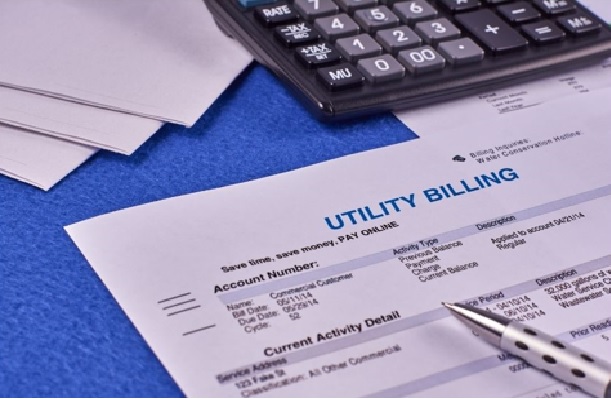Imagine this…

Topic: Utility Services and Costs- Implementing Energy Efficiency Measures in a Commercial Building
Background: Imagine a scenario where a property management company owns a large commercial building in a major city. This building houses several businesses, and the utility costs for electricity and heating/cooling are skyrocketing. The property management company is facing pressure from both tenants and environmental activists to reduce energy consumption and costs while also minimizing the building’s carbon footprint.
Persuasive Argument:
- Cost Savings: The property management company can argue that implementing energy-efficient measures such as upgrading lighting systems, installing programmable thermostats, and improving insulation will lead to significant cost savings over time. By reducing electricity and heating/cooling expenses, they can offer more competitive lease rates to tenants, potentially attracting more businesses to occupy the building.
- Environmental Responsibility: Emphasize the importance of corporate social responsibility and sustainability. Implementing energy-efficient measures aligns with global efforts to reduce greenhouse gas emissions and combat climate change. By reducing the building’s carbon footprint, the property management company can position itself as an environmentally responsible and forward-thinking organization.
- Tenant Satisfaction: Highlight that tenants will benefit from a more comfortable and energy-efficient workspace. Improved lighting, better temperature control, and reduced utility costs can enhance employee productivity and satisfaction, which, in turn, can lead to longer lease agreements and lower tenant turnover.
- Government Incentives: Mention government incentives and rebates available for energy-efficient upgrades. Many jurisdictions offer financial incentives to businesses that invest in energy-saving technologies. These incentives can help offset the upfront costs of improvements, making it a financially attractive proposition.
- Competitive Advantage: Point out that businesses located in energy-efficient buildings may gain a competitive advantage. In today’s environmentally conscious market, companies that demonstrate their commitment to sustainability may attract more customers and investors.
- Long-Term Investment: Argue that energy-efficient upgrades should be seen as a long-term investment rather than an immediate expense. Over time, the savings on utility bills will not only cover the initial costs but also contribute to increased profitability.
- Community Impact: Mention the positive impact on the local community. Reducing energy consumption helps decrease the strain on the local utility grid, potentially preventing blackouts during peak demand periods. This benefits not only the building occupants but also the broader community.
In this persuasive scenario, the property management company can make a compelling case for implementing energy-efficient measures, framing it as a win-win situation for both their financial interests and their responsibility to the environment and community.
What is Utility Services and Costs?

Utility services refer to essential services provided to households, businesses, and institutions to ensure the functioning of basic amenities and infrastructure necessary for daily life and operations. These services are typically delivered by public or private entities and include the following:
- Electricity: The provision of electrical power for lighting, heating, cooling, and powering appliances and machinery.
- Water Supply: The distribution of clean and safe drinking water for consumption, as well as for industrial and commercial uses.
- Natural Gas: The supply of natural gas for heating, cooking, and powering appliances in homes and businesses.
- Wastewater Treatment: The collection, treatment, and disposal of wastewater and sewage to protect public health and the environment.
- Solid Waste Management: The collection, recycling, and disposal of solid waste, including garbage and recyclables.
- Telecommunications: Services like telephone, internet, and cable television that enable communication and access to information.
- Heating and Cooling (HVAC): Services related to heating, ventilation, and air conditioning systems, which are essential for maintaining comfortable indoor temperatures.
- Transportation Infrastructure: Roads, bridges, public transportation systems, and airports that facilitate the movement of people and goods.
- Municipal Services: Services provided by local governments, such as street lighting, public parks, and municipal buildings.
- Emergency Services: Police, fire, and ambulance services that ensure public safety and respond to emergencies.
Utility costs refer to the expenses associated with these services. Individuals, households, businesses, and institutions are usually billed for their consumption of utilities on a regular basis, often monthly. The costs can vary based on factors such as usage, location, and the specific service provider. Utility costs are an important part of a budget for both individuals and organizations, and they can have a significant impact on overall expenses.
Efforts are often made to manage and reduce utility costs through conservation measures, energy-efficient technologies, and other strategies to promote sustainability and cost savings. Additionally, utility services are often subject to regulations and oversight to ensure that they are provided safely, reliably, and at fair prices to consumers.
Why is it important?

When purchasing a property, it is important to consider the utility services and costs associated with the property. This includes electricity, gas, water, and sewer services, as well as any costs for trash and recycling removal. Understanding these costs can help you budget for your monthly expenses and ensure that you are not caught off guard by unexpected bills.
In addition to the costs of the utilities themselves, it is important to understand how the property is serviced. For example, is the property on a public water and sewer system, or does it have a private well and septic system? If the property has a private system, it is important to have it inspected to ensure that it is functioning properly and up to code.
You should also inquire about the availability of high-speed internet and cable services in the area, as these are often important amenities for homeowners.
Overall, understanding the utility services and costs associated with a property can help you make an informed decision and avoid any unexpected expenses.
By investing in energy-efficient upgrades for our commercial building, not only can we significantly reduce our utility costs and enhance tenant satisfaction, but we also demonstrate our commitment to environmental responsibility, positioning ourselves as a forward-thinking and socially responsible organization in today’s competitive business landscape. Contact us!
Follow us!
For more details you may also follow our Facebook, Instagram, and YouTube!




